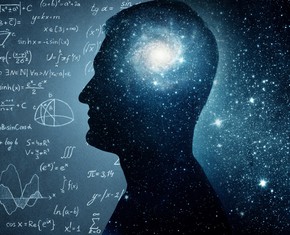The views expressed in our content reflect individual perspectives and do not represent the authoritative views of the Baha'i Faith.
Can science save us? I don’t mean technologically or socially—I mean personally.
My atheist friend Mycroft remarked that faith was unnecessary because “… a whole branch of science is devoted to the biological and societal reasons for human conditions, the balance of selfishness and altruism, greed and reciprocal behavior, dogma and tolerance, etc.”
There may be a branch of science dedicated to finding a biological explanation for everything we are and do, but in what way should the existence of that discipline impact my understanding that we humans exist in part in a spiritual and intellectual reality? In what way would that invalidate my individual attempts to understand my self and my interrelations with other human beings? Should I suspend my belief that I can affect my personal reality and/or the world around me because there’s a branch of science that’s studying the issue?
“You refer,” Mycroft continued, “to the essentially political problem of how potentially beneficent science is being applied, or rather not applied. … Well, as far as I can see from the outside, it looks like atheists are born liberals… In Germany, where I was born, they have obligatory health insurance for everybody, since 1871/1889. That was when they still had a Kaiser, 120+ years ago… As I said – it’s more of a political problem.”
The German government’s response to the need for healthcare may have been political, but it is a response to a spiritual and moral issue of whether the individual has some responsibilities toward the collective and vice versa. In the larger sense, the beneficent application of science (and resources) is an issue related to how we think and behave as individuals and therefore what moral and spiritual values inform our society. Even what seems a purely political problem (such as the gridlock spawned by the USA’s broken party systems) is a symptom of a deeper issue.
I know many atheists who are far from liberal. I think social liberals come in all flavors, just as dogmatic conservatives do. Is there a type of religious dogmatism that leads people to be selfish and stingy? You betcha, but it flies in the face of the teachings of the Faith those people profess. I’ve also seen that sort of dogmatism in atheists, which causes some non-believers to show prejudice against others simply because they are religious. That sort of dogmatism causes them to believe—against all evidence to the contrary—that all “believers” are the same.
The Baha’i teachings observe that:
… the principles of the Divine religions can hardly be evaluated by the acts of those who only claim to follow them. For every excellent thing can still be diverted to the wrong ends. A lighted lamp in the hands of an ignorant child or of the blind will not dispel the surrounding darkness nor light up the house—it will set both the bearer and the house on fire. – Abdu’l-Baha, The Secret of Divine Civilization, p. 72.
The point, of course, is that it doesn’t matter where dogmatism pops up—it’s still dogmatism and it’s still harmful, because it precludes persons with different beliefs from having a productive and beneficial dialogue.
There is some irony in Mycroft’s use of the German Bismarck healthcare system as an evidence of atheistic liberalism. Ironic, because Otto von Bismarck—a devout Lutheran—proposed his system as what he termed “applied Christianity.” He was right—it was the application of principles of altruism repeatedly proposed by Christ.
Baha’u’llah cited this application of the principles of faith as being key to our progress as a species:
It is incumbent upon every man of insight and understanding to strive to translate that which hath been written into reality and action …. That one indeed is a man who, today, dedicateth himself to the service of the entire human race. – Gleanings from the Writings of Baha’u’llah, p. 250.
In the course of my conversation with Mycroft, I had commented that science in and of itself could not contribute durable solutions to human suffering. Mycroft found this outrageous. He was convinced that science was the savior of mankind—that it could confer upon us because, in his words, it “prolonged human life spans by eliminating many causes of premature death, plagues and pestilences, reduced maternal and child mortality, and continues to progress. No durable contribution? Ask someone with a kidney transplant or a former cancer patient.”
This might be true if science had a moral will of its own, but of course, it does not. It is a tool at the service of human agency. No suffering can be relieved in any durable way by science, unless and until human beings determine to use the product of science to relieve that suffering. What good is a long life if it is spent in a world where political chaos and poverty are rampant or if the threat of global warfare or climate change, bolstered by greed and a thirst for power, threaten the entire population?
Science cannot solve the suffering caused by selfishness, greed, and a dogma of individual sovereignty that dictates that the needs of the one (ME!) outweigh the needs of the many. Science cannot solve the healthcare crisis in the US, or the AIDS epidemic in Sub-Saharan Africa, because science is devoid of any power of its own.
I repeat: Science is a tool. We have so far wielded it as much for ill as for good. Much research in benign areas is financed by research for weapons of war—conventional, nuclear, biological.
In the US, a person who can afford it certainly has the ability to buy the fruit of medical science. The poor and disenfranchised, however, have not. So, to them, the voice of science is indeed, empty, because the voice of compassion is shouted down by the louder and more strident voice of materialism.
When we can solve that problem, then science WILL have a durable effect.
















Comments
Sign in or create an account
Continue with Googleor